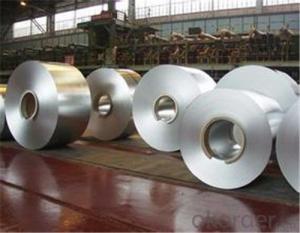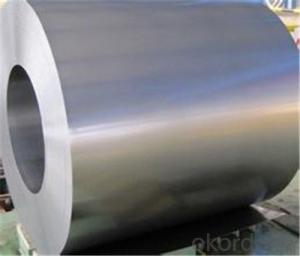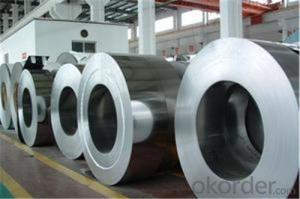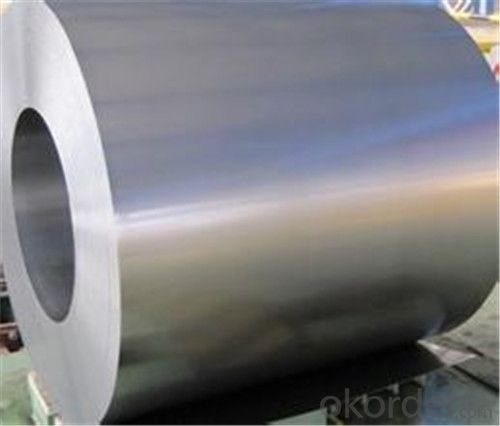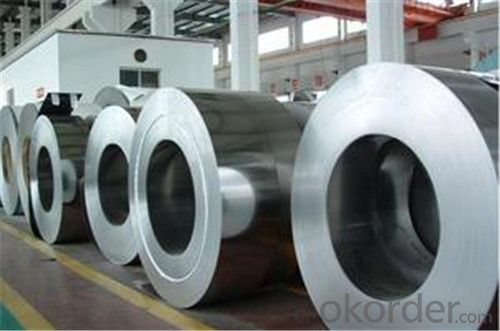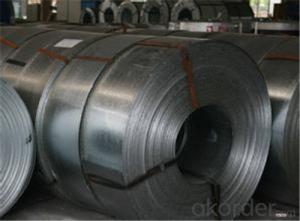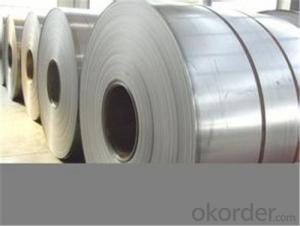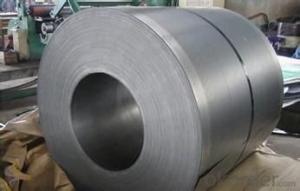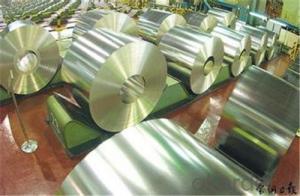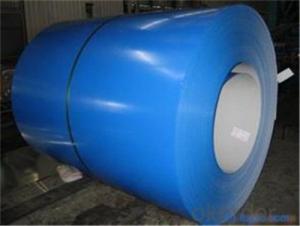Rolled Steel Coil / Sheet / Plate in CNBM from China
- Loading Port:
- Tianjin
- Payment Terms:
- TT or LC
- Min Order Qty:
- 100 m.t.
- Supply Capability:
- 5000000 m.t./month
OKorder Service Pledge
OKorder Financial Service
You Might Also Like
Description:
The raw material of cold rolled steel coil/sheet is high quality hot rolled product, and after pickling, kinds of new technology and new process of global cold rolling production have been applied. Therefore the manufacturing, home appliance, automobile etc.
Specification:
COLD ROLLED STEEL | |
Thicknenss | 0.10mm-4.00mm |
Width | 600mm-2000mm |
Sheets length | 1200-6000mm |
Coil inner diameter | 508-610mm |
Surface treatement | matt finish/bright finish,oiling/dry, bright anneal/black anneal |
Coil weight | 3-5t |
Characteristic:
Quality of the goods could be guaranteed. The finished product has a variety of excellent capabilities, such as continuous rolling, degreasing, annealing, skin pass, slitting and cut to length line etc. Along with it many rocessing capability and smooth, flat surface. It’s widely used in outdoor and interior decoration, furnishing
Details:
We can ensure that stable quality standards are maintained, strictly meeting both market requirements and customers’ expectations. Our products enjoy an excellent reputation and have been exported to Europe, South-America, the Middle-East, Southeast-Asia, Africa and Russia etc.. We sincerely hope to establish good and long-term business relationship with your esteemed company.
Images:
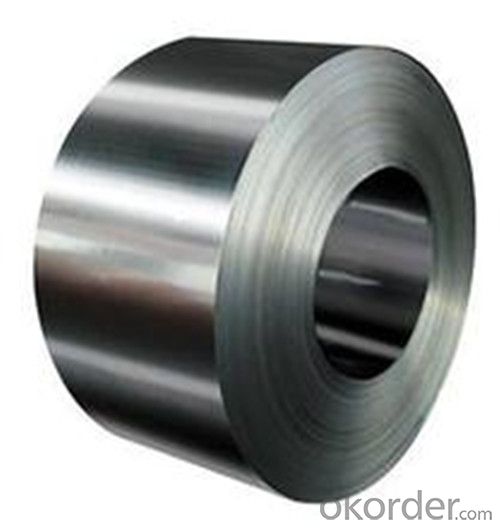
FAQ
1.What's your MOQ?
50MT, it is for one container.
2.Whether your company have QC teams?
Yeah, sure, our QC team is very important, they will keep the quality control for our products.
3. What's your normal delivery time?
Our delivery time about 10-20days for standard sizes, if you have other requirements like hardness and width ,it is about 20-40days.
- Q: What is a steel coil?
- A steel coil is a long, continuous sheet of steel that has been wound into a coil shape. It is typically made from hot-rolled or cold-rolled steel and is used in various industries for manufacturing purposes, such as in automotive, construction, and appliance sectors.
- Q: What are the different types of surface defects in steel coils?
- Some of the different types of surface defects in steel coils include scratches, pits, rust, scale, stains, and indentations.
- Q: What are the different steel coil surface treatments?
- Some of the different steel coil surface treatments include galvanizing, painting, powder coating, and oiled finishes.
- Q: What minerals are mixed to make steel?
- Carbon and Iron.....usually.
- Q: How are steel coils processed at the steel service centers?
- Steel service centers process steel coils through a series of steps to transform them into finished products that meet the specific requirements of customers. The process typically begins when the steel coils arrive at the service center. These coils are usually large and heavy, and they may have been produced by a steel mill or imported from overseas. Upon arrival, the steel coils undergo a quality inspection to identify any defects and ensure that only high-quality coils are used in the production process. After inspection, the coils are stored in a warehouse until they are ready for processing. Next, the steel coils are uncoiled to create flat sheets of steel. This can be done manually or using automated machines, depending on the size and thickness of the coils. The uncoiled steel is then leveled to remove any residual stress and ensure a flat and consistent surface. Once leveled, the steel sheets go through various processes based on the desired end product. These processes may include cutting, shearing, slitting, and forming. Cutting and shearing involve shaping the steel sheets into specific sizes or shapes. Slitting involves cutting the steel into narrow strips, while forming involves bending or shaping the steel. After the desired processing operations are completed, the steel sheets are often treated with surface finishes to enhance their appearance or protect them from corrosion. These finishes may include painting, coating, or galvanizing. Finally, the processed steel sheets undergo another quality inspection to ensure they meet the required specifications. They are then packaged and prepared for shipment to customers in industries such as construction, automotive, or manufacturing. Overall, the processing of steel coils at steel service centers involves a combination of inspection, uncoiling, leveling, cutting/shearing/slitting/forming, surface finishing, quality control, and packaging. This process allows for the transformation of steel coils into finished products that are customized to meet the specific needs and requirements of customers.
- Q: and also what makes different hardness of stainless steel?
- a little clarification. steel doesn't become stainless. There are many different types of steel, which is an alloy of iron and other element. The other elements determine things like hardness, corrosion resistance, etc. One element is chromium, which when added in the correct proportions, forms stainless steel. PS, there are many many different stainless steels, with different proportions.
- Q: How do steel coils impact the overall cost of production?
- Steel coils have a significant impact on the overall cost of production in a variety of industries. Firstly, the cost of steel coils themselves can be a significant expense. The price of steel is influenced by various factors such as supply and demand, raw material costs, and market fluctuations. Any increase in the cost of steel coils can directly impact the overall production cost, as it becomes a major component in the manufacturing process. Moreover, steel coils also affect the operational costs of production. They are typically used in various manufacturing processes, such as stamping, rolling, and forming, which require specialized machinery. The durability, quality, and size of the steel coils play a vital role in determining the efficiency and effectiveness of these processes. If the steel coils are of low quality or not suitable for the specific production requirements, it can lead to increased downtime, machinery maintenance, and rework, all of which contribute to higher production costs. In addition, transportation costs associated with steel coils can also impact the overall cost of production. Steel coils are usually heavy and bulky, necessitating special handling and transportation arrangements. The distance between the supplier and the production facility, as well as the mode of transportation, can significantly influence the logistics costs. Any increase in transportation expenses, such as fuel prices or shipping fees, can directly impact the overall cost of production. Lastly, the availability of steel coils can also impact production costs. In times of high demand or limited supply, the price of steel coils may increase, leading to higher production costs. Furthermore, if there is a shortage of steel coils due to factors like trade restrictions or disruptions in the supply chain, manufacturers may have to resort to alternative materials or sources, which could be more expensive or lower in quality. These factors can have a cascading effect on the overall cost of production. Overall, steel coils have a significant impact on the overall cost of production. Their cost, quality, transportation, and availability all influence the efficiency, effectiveness, and affordability of the manufacturing process. Therefore, manufacturers need to carefully consider and manage these factors to optimize their production costs and maintain competitiveness in their respective industries.
- Q: Does SA use its own iron ore to produce steel for construction or do we rely on imports?
- Iron ore is just a rock -- in fact it would probably be hard to tell iron ore from a piece you found lying out in your backyard. It's what mines produce, and it needs to be burned to separate it into its different elements. Iron is an element. It is the purest form of the metal. Steel is mostly iron, but it is not pure iron. To make steel you must burn coke (another kind of rock) along with the iron ore. The coke adds carbon to the iron, producing steel which is stronger than pure iron.
- Q: What are the common applications of cold-rolled stainless steel coils?
- Cold-rolled stainless steel coils have various common applications in industries such as automotive, construction, and manufacturing. They are commonly used in the production of appliances, kitchen equipment, roofing, and cladding materials due to their corrosion resistance, durability, and aesthetic appeal. Additionally, cold-rolled stainless steel coils are utilized in the fabrication of pipes, tubes, and structural components, as well as in the production of surgical instruments and medical equipment, owing to their sanitary and hygienic properties.
- Q: What are the main raw materials used in making steel coils?
- The main raw materials used in making steel coils are iron ore, coal, and limestone.
Send your message to us
Rolled Steel Coil / Sheet / Plate in CNBM from China
- Loading Port:
- Tianjin
- Payment Terms:
- TT or LC
- Min Order Qty:
- 100 m.t.
- Supply Capability:
- 5000000 m.t./month
OKorder Service Pledge
OKorder Financial Service
Similar products
Hot products
Hot Searches
Related keywords
